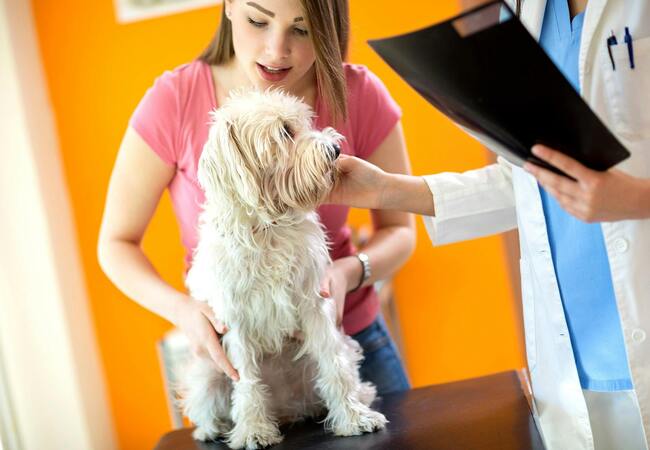Vet’s 2025 Guide to Canine Salmonella Infection 🩺 Causes, Diagnosis & Care

In this article
Vet’s 2025 Guide to Canine Salmonella Infection 🩺 Causes, Diagnosis & Care
By Dr. Duncan Houston BVSc
💡 What Is Salmonella Infection?
Salmonellosis is caused by the bacterium Salmonella spp., which affects the intestinal tract of dogs and can range from asymptomatic to severe systemic illness.
🚩 How Do Dogs Become Infected?
- Consumption of raw/undercooked meat, eggs, or dried pig ears.
- Exposure to fecal-contaminated environments—common on farms or after ingestion of infected animals.
🐶 Who's at Higher Risk?
- Puppies, seniors, or immunocompromised dogs—more likely to develop symptoms.
- High-exposure dogs: raw-fed, kennel-housed, or hunt dogs.
🔍 Clinical Signs
- 📌 Gastrointestinal: vomiting, diarrhea (often watery or bloody), abdominal pain.
- Systemic signs: fever, lethargy, anorexia, dehydration, possibly enlarged lymph nodes or increased heart rate.
- Severe cases may progress to septicemia, shock, or even death if untreated.
🧪 Diagnostic Approach
- Medical history & examination: diet, diarrhea onset, raw food exposure.
- Stool culture to confirm Salmonella presence.
- Bloodwork: CBC, biochemistry, dehydration assessment.
- Rule out other causes (parasites, food intolerance, Addison’s, etc.) via fecal tests and imaging.
🩺 Treatment Guidelines
1. Supportive Care
- IV or subQ fluids to correct dehydration and electrolytes.
- Control nausea/vomiting; provide easily digestible diet.
2. Antibiotics (If Needed)
Reserved for dogs showing systemic signs (fever, septicemia).
- Cephalosporins or ampicillin commonly used; the clinic may avoid routine antibiotics in mild cases.
- Risks: antibiotic-resistant strains and prolonged bacterial shedding.
3. Intensive Care
- Hospitalization for severe cases, sepsis or shock.
- May include feeding tubes, transfusions, NSAIDs.
📈 Prognosis & Recovery
- Many dogs recover within days with care; severe cases take weeks.
- Asymptomatic dogs can remain carriers and intermittently shed bacteria.
- Septicemia carries a guarded to poor prognosis depending on organ involvement.
🚫 Prevention Strategies
- Avoid raw diets, undercooked meat, pig ears; fully cook home-prepared meals.
- Practice strict hygiene: wash hands, clean the environment,s and bedding after diarrhea episodes.
- Prompt feces removal and disinfection in kennels and yards.
- Avoid contact with wildlife, reptiles, or sick animals.
🏡 Ask A Vet Home Support
- 📊 Symptom logging: diarrhea frequency, vomiting, water intake, appetite.
- 🕒 Care reminders: fluid therapy, diet transitions, vet check-ups.
- 📸 Photo uploads: for stool consistency and hydration checks.
- 🔔 Alerts: dehydration signs, persistent fever or bloody stools.
- 📚 Educational resources: diet safety, cleaning protocols, carrier risk information.
🔍 Key Takeaways
- Salmonella in dogs stems from raw food or fecal exposure and ranges from no signs to severe disease.
- Watch for vomiting, diarrhea (often bloody), fever, and lethargy.
- Diagnosis via stool culture and lab tests; treatment is mostly supportive.
- Antibiotics only for systemic illness; watch for resistance and carrier status.
- Prevention: cooked diets, hygiene, and isolation; Ask A Vet app enhances home care and monitoring.
🩺 Final Thoughts ❤️
In 2025, canine salmonellosis is largely preventable with smart feeding choices and hygiene practices. Early detection and home monitoring with Ask A Vet ensures quick interventions, improved outcomes, and reduced risk to your human family. Let’s protect every pup—and every person in the home—from this hidden threat. 🐾✨
Visit AskAVet.com and download the Ask A Vet app to log symptoms, schedule reminders, upload updates, and stay connected with your vet—right from home. 📲






